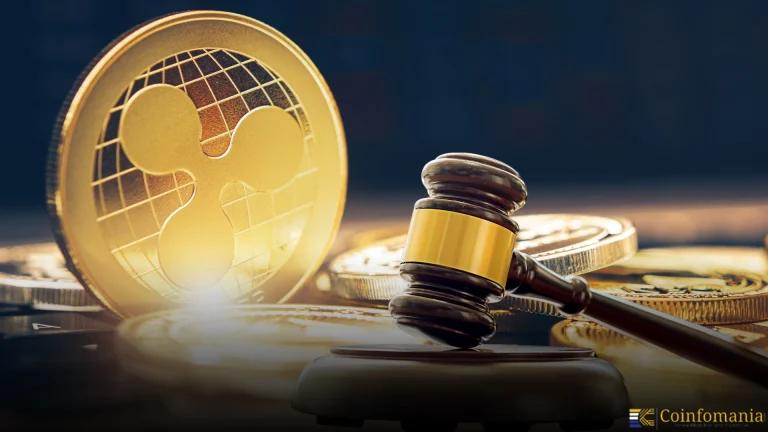Cryptocurrency Regulations in Canada
Canada has been a country that is friendly towards crypto, finding a perfect balance in embracing innovation while protecting the interests of the investors. It’s not permissive but its regulatory approach for blockchain and cryptocurrency is supportive of these industries under its strong compliance rules. Crypto investors, entrepreneurs and users should understand the regulatory environment […]

Canada has been a country that is friendly towards crypto, finding a perfect balance in embracing innovation while protecting the interests of the investors. It’s not permissive but its regulatory approach for blockchain and cryptocurrency is supportive of these industries under its strong compliance rules.
Crypto investors, entrepreneurs and users should understand the regulatory environment since it is critical in conducting lawful and effective crypto operations. All these range from trading and crypto mining to taxation and doing business.
There are primarily two entities that oversee the country’s regulatory structure:
- Canadian Securities Administrators (CSA) is the name of a coalition of provincial regulators responsible for carrying out securities law.
- Financial Transactions and Reports Analysis Centre of Canada (FINTRAC) – Enforces anti-money laundering (AML) and anti-terrorist financing laws
Working together, they make Canada’s crypto space a structured, secure and evolving environment in accordance with global standards.
Historical Context
Canada was one of the earliest countries to recognize cryptocurrency as a legitimate asset class, first referring to Bitcoin (and other digital currencies) as a commodity under its tax code. In the early 2010s, the Canada Revenue Agency (CRA) started offering guidance , treating crypto like property for tax purposes.
In 2020 and 2021 Purpose Investments and 3iQ made history by introducing crypto Exchange-Traded Funds (ETFs). These made Canada a pioneer with regard to institutional crypto investment.
Provincial regulators have over time started formalizing the crypto framework, such as through CSA staff notices like 21-329, which provided legal clarity on the crypto trading platforms’ obligations. This new attitude in the Canadian regulator is all about maturing—the embrace of the digital assets themselves, coupled with a clear capitalist eye towards compliance, investor protection and financial transparency.
Regulatory Framework
Key Regulatory Authorities
- CSA: Coordinates regulation of crypto assets as securities across provinces.
- FINTRAC: Complains with AML regarding crypto businesses classified as money service businesses (MSBs).
Licensing and Registration Requirements
If crypto platforms do not provide margin or leverage, they will have to register with the CSA as a dealer, which would often fall under the category of a “restricted dealer.” This comes as a requirement that any party providing crypto exchange or exchange services must, in the meantime, register as an MSB with FINTRAC.
AML & KYC Requirements
Under the Proceeds of Crime (Money Laundering) and Terrorist Financing Act (PCMLTFA), all MSBs have to conduct KYC programs, report suspicious or large transactions and monitor client activities. Binance was fined C$6 million in May 2024 for not meeting such obligations.
Taxation of Cryptocurrency
The CRA taxes crypto as a commodity.
- Gain is taxable as income or capital, depending on use.
- In line with recent 2024 rules, the capital gains inclusion rate has increased from one-half for individuals earning more than C$250,000 and for corporations/trusts.
- Form T1135 must be filed if crypto held abroad exceeds C$100,000.
- Exemptions under the Excise Tax Act; however, crypto payments and income are taxed at fair market value.
ICOs, STOs, and Other Assets
If ICOs and STOs comply with the Pacific Coin test, they are governed as securities. In order to help assess whether tokens are securities, the CSA has published guidance including Staff Notice 46-307.
Canada’s Crypto Policies
Cryptocurrency is permitted to be used for transactions in Canada, wherein it is not legal tender under federal law. However, there are in fact now many businesses, and in particular online platforms, that do accept crypto payment, supporting adoption.
Mining is permitted federally, although there are energy regulations in provinces like British Columbia and Québec to ensure sustainability. For example, BC controls electricity supply to large-scale mining facilities, and Québec now has higher energy prices for new projects.
There are some initiatives where the government supports blockchain. While a Digital Dollar is being explored by the Bank of Canada, no such retail CBDC has been launched.
Failure to meet regulations such as CSA registration or FINTRAC AML rules can result in fines or even criminal prosecution. Notably, high-profile penalties like the Binance case further reinforce Canada’s standing in ensuring a compliant and transparent crypto sector.
Canada’s Approach to Crypto Innovation
The Canadian Securities Administrators (CSA) regulatory sandbox in Canada accelerates innovation through the testing of crypto products under regulatory supervision by startups. In addition, innovation hubs exist at the provincial level, with Ontario’s Launchpad, Québec’s Fintech Lab and BC’s Fintech Advisory Forum.
Growth in adoption is coming to fruition, as Bitbuy, Coinsquare and NDAX all have regulated platforms. This is also supported by Canada’s crypto ETF market, as institutional players are also increasingly involved and now manage over C$2.8 billion in assets.
The federal government is backing the development of the blockchain through startups such as the Distributed Ledger Technology (DLT) Pilot Regime, experimenting with tokenized assets.
Notable Challenges and Issues
Because Canada has a decentralized model, there are regulatory inconsistencies—while the CSA sets national expectations, each province does focus on enforcement and licensing slightly differently.
Anonymity, however, makes it hard to regulate decentralized finance (DeFi) and self-hosted wallets due to difficulty in AML compliance. Blockchain analytics is used by regulators, but enforcement in this space is still new and spurring.
As crypto continues to make gradual gains, the public has mixed feelings about it. Tech savvy users and younger demographics are staying positive, but older Canadians and mainstream media are skeptical due to fraud and volatility. While communal adoption is increasing and the laws are getting clear, public trust is gradually being built.
Regulatory Trends and Sector Outlook
Over the past couple of years, there have been several reforms in Canada to tighten its crypto oversight. Also, key updates include CSA’s Staff Notices 21–332 and 21–333, reiterating the CSA’s requirements, particularly for crypto trading platforms. The principles include enhanced disclosures, pre-registration undertakings, and new stablecoin guidelines.
To make cross-border transaction transparency, the 2024 Federal Budget proposes the adoption of the OECD Crypto Asset Reporting Framework (CARF) by the year 2026.
As things stand, Canada will continue to be an innovation enabler when it comes to crypto regulation, but further tightening of rules will be expected, particularly around stablecoins, DeFi and offshore holdings.
Given Canada’s leadership in ETF approvals, Canada’s balanced model is already having a positive impact on other G7 nations. Having a crypto-friendly but heavy-on-compliance position is what sets the global benchmark for crypto regulation.
Conclusion
Canadian cryptocurrency regulations are still on track to be fair and comprehensive. The crypto businesses and users are forced to comply with strict requirements, but on the other hand, it promotes innovation.
Anyone participating in Canada’s crypto ecosystem be it investors, traders or entrepreneurs, should know these regulations. Being aware of upcoming modifications in official guidelines will help you meet all requirements and tap into future business opportunities.
Frequently Asked Questions (FAQs)
1. Is Bitcoin legal in Canada?
As a regulated commodity, it is legal.
2. Can crypto be used to pay for goods in Canada?
It is yes, but it’s not legal tender, it’s not acceptable by law, acceptance is voluntary.
3. What are the rules of crypto taxation in Canada?
Income or capital tax type will determine the taxation of gains.
4. I live in Canada. Do I need to report the crypto?
Yes, if holdings abroad are greater than C$100,000.
5. Are crypto exchanges regulated in Canada?
Crypto Exchange must indeed register with the CSA and FINTRAC.
6. Can I mine crypto in Canada?
Yes, however, some provinces actually regulate energy use for mining.
7. Does Canada have a central bank digital currency?
No, Canada does not have a central bank digital currency, but the Canadian government is looking at a Digital Dollar.
8. If a crypto business is not registered, what are the fines?
Fines or criminal charges can be levied on it, if the crypto business is not registered.
9. Are stablecoins legal in Canada?
Yes, stable coins are legal in Canada, but there are strict guidelines imposed on them under new CSA notices.
10. Is Canada crypto-friendly?
Yes, it does foster innovation under a structured regulatory regime.
Follow us on Google News
Get the latest crypto insights and updates.
Related Posts

Ripple Highlights Custody as Key to $18.9T Tokenized Assets by 2033
Shweta Chakrawarty
Author

Hong Kong SFC Issues New Custody Rules for Crypto Platforms
Shweta Chakrawarty
Author

South Korea and Vietnam eye $150B trade despite Trump tariff
Shweta Chakrawarty
Author